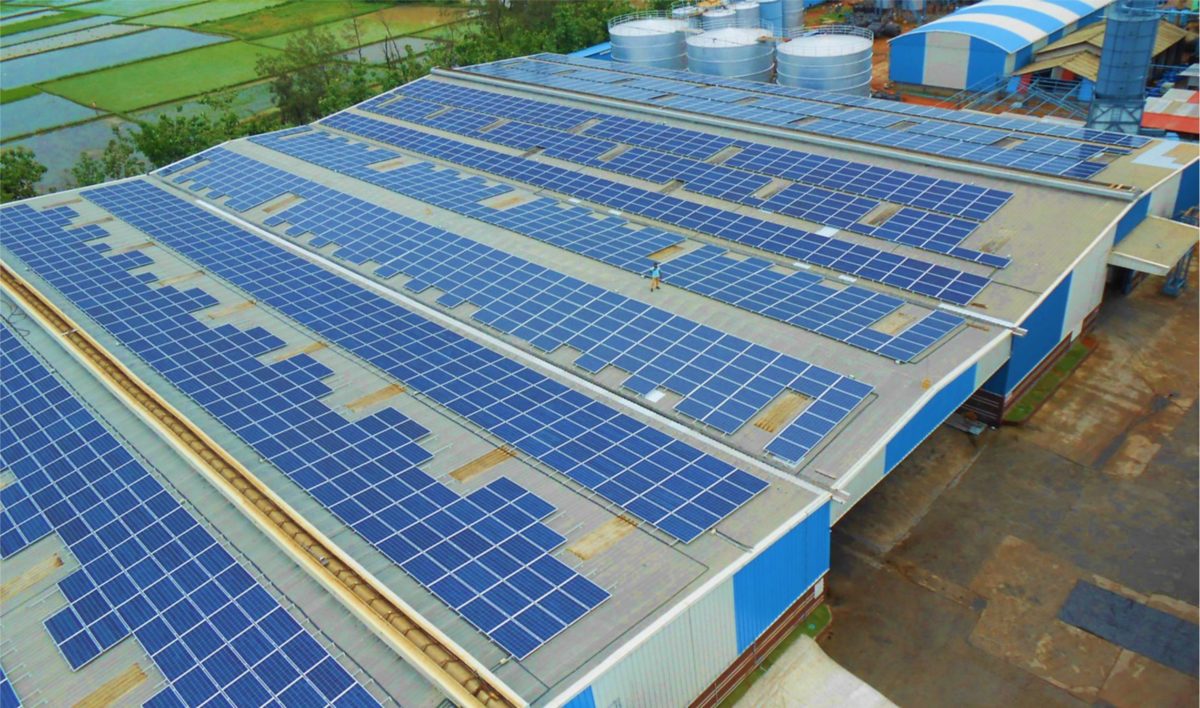Sustainable development expert Auroville Consulting has published a report on the current status of grid-connected rooftop solar financing in Tamil Nadu, taking into account the implementation of the international lines of credit by various banks in the State.
According to the report, public-sector banks like the State Bank of India (SBI) and Punjab National Bank (PNB) have an advantage over the Indian Renewable Energy Development Agency (IREDA) as they have branches all over the state, including rural areas.
On the other hand, IREDA, being a dedicated company to promote the renewable energy sector, has the advantage of obtaining large Government and international development funds for this specific purpose. However, its current restriction on financing with a minimum loan amount of INR 50 lakh attracts large-scale projects; though it is currently making efforts to also include small-scale rooftop solar generation.
Given public-sector banks’ wider reach, the report suggests increasing the number of branches equipped to deal with rooftop solar financing in order to improve the availability to these financing facilities, which is low.
According to the report, SBI, PNB, IREDA, Syndicate Bank and Indian Bank have a dedicated scheme for rooftop solar in Tamil Nadu.
Other Indian banks provide financing for rooftop solar under categories like housing loans, corporate loans and personal loans, which makes it difficult to keep track of their progress.
The Auroville report suggests the creation of a dedicated window or segment to address this issue.
Other challenges identified by the Auroville survey are the lack of awareness amongst the consumers on the financial benefits, the availability of financing under suitable business models, the lack of strong coordination amongst stakeholders, and the required skills and knowledge amongst the key stakeholders such as state nodal agencies, Electricity Regulatory Commissions and authorities, utilities, and the financing institutions.
While these challenges are being addressed through technical assistance programs, market development strategies and promotional campaigns, the report highlights the need to plug knowledge, skills and capacity gaps in banks to deal with solar lending.
The report stated that SBI and PNB had sanctioned loans for a cumulative capacity of 75 MW and 25 kW, respectively, as of April 2020, and mainly under the CAPEX model. IREDA provided a loan for 6 MW of rooftop solar from 2012 to 2019.
Funding from international banks
As the Government of India aims to install 40 GW of grid-connected rooftop solar systems by 2022, it has sought concessional loans and funds under climate financing from multilateral and development banks.
Major programs funded with international credit lines include grid-connected rooftop solar (GRPV) program, solar rooftop investment program (SRIP), and German-India solar partnership.
All these programs aim to increase debt financing availability to public-sector banks and focus on capacity building. At the consumer end, the programs primarily target industrial and commercial customers as their electricity tariff rates are higher than other consumer categories. Therefore, the transition to rooftop solar would result in a higher rate of returns for these consumers.
The World Bank (through International Bank for Reconstruction and Development), Asian Development Bank, and KFW have designed their respective programs to accelerate energy development by increasing grid-connected rooftop solar uptake in the country, in line with the Government’s targets. The Clean Technology Fund and Global Environmental Facility additionally support the GRPV and SRIP programs.
This content is protected by copyright and may not be reused. If you want to cooperate with us and would like to reuse some of our content, please contact: editors@pv-magazine.com.









4 comments
By submitting this form you agree to pv magazine using your data for the purposes of publishing your comment.
Your personal data will only be disclosed or otherwise transmitted to third parties for the purposes of spam filtering or if this is necessary for technical maintenance of the website. Any other transfer to third parties will not take place unless this is justified on the basis of applicable data protection regulations or if pv magazine is legally obliged to do so.
You may revoke this consent at any time with effect for the future, in which case your personal data will be deleted immediately. Otherwise, your data will be deleted if pv magazine has processed your request or the purpose of data storage is fulfilled.
Further information on data privacy can be found in our Data Protection Policy.